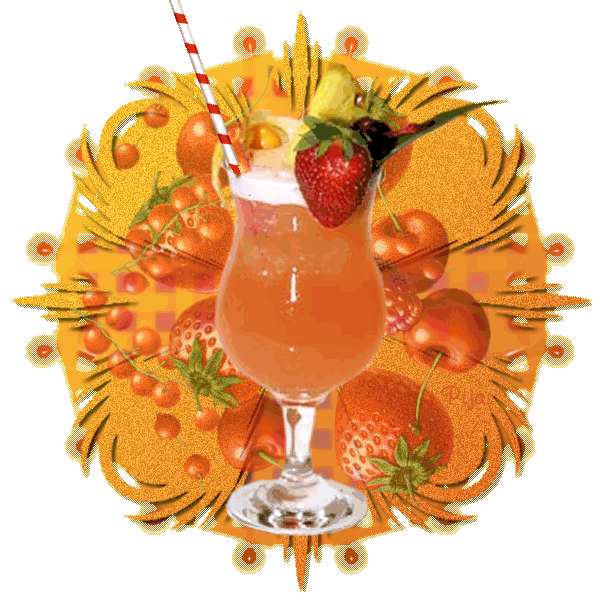
8 resistance-boosting foods and ingredients to help you win the cold war
It takes more than an apple a day to keep viruses at bay. You can improve your body’s resistance by getting your seven servings of fruits and veggies and 8 to 10 glasses of water a day, at the very least.These particular immune system-boosting foods and ingredients can keep you in fighting condition.
Yogurt
The "live active cultures" found in yogurt, are healthy bacteria that keep the gut and intestinal tract free of disease-causing germs. Although they're available in supplement form, a study from the University of Vienna in Austria found that a daily 7-ounce dose of yogurt was just as effective in boosting immunity as popping pills.
In an 80-day Swedish study of 181 factory employees, those who drank a daily supplement of Lactobacillus reuteri — a specific probiotic that appears to stimulate white blood cells — took 33 percent fewer sick days than those given a placebo. Any yogurt with a live and active cultures seal contains some beneficial bugs, but Stonyfield Farm is the only U.S. brand that contains this specific strain. Have two 6-ounce servings a day.
Be sure you chose a yogurt that is no more than 200 calories, 4 grams of fat or less, 30 g of sugar or less and at least 6 grams of protein.
Sweet potatoes
You may not think of skin as part of your immune system. But this crucial organ, covering an impressive 16 square feet, serves as a first-line fortress against bacteria, viruses, and other undesirables. To stay strong and healthy, your skin needs vitamin A. "Vitamin A plays a major role in the production of connective tissue, a key component of skin," explains Dr. David Katz, director of the Yale-Griffin Prevention Research Center in Derby, Conn.
One of the best ways to get vitamin A into your diet is from foods containing beta-carotene, which your body turns into vitamin A. One of the quickest, most delicious ways to get beta-carotene? Serve candied sweet potatoes (canned are fine). Each 12-cup serving delivers only 170 calories but 40 percent of the daily recommendation of vitamin A as beta-carotene. They're so good, you might want to save them for dessert! Think orange when looking for other foods rich in beta-carotene: carrots, squash, canned pumpkin and cantaloupe.
Tea
this winter, and you may just get through it without a sniffle. Immunologists at Harvard University discovered that people who drank five cups of black tea a day for 2 weeks transformed their immune system T cells into "Hulk cells" that pumped out 10 times more cold and flu virus-fighting interferon — proteins that defend against infection — than did the immune systems of those who didn't drink black tea. Green tea should work just as well.
"Not just the common cold and flu, but food poisoning, infected cuts, athlete's foot — even diseases such as tuberculosis and malaria — are caused by germs that your body fights with interferon. We think the interferon boosts from tea may help prevent or lessen the severity of all these conditions," says Dr. Jack Bukowski.
While five cups a day may seem like a lot, he thinks fewer cups may still offer some valuable protection. "And the interferon link may explain tea's other health benefits, including its reported cancer-fighting power, since we already know that interferon slows the growth of tumor cells," he says.
Chicken soup
When University of Nebraska researchers tested 13 brands, they found that all but one (chicken-flavored ramen noodles) blocked the migration of inflammatory white cells — an important finding, because cold symptoms are a response to the cells' accumulation in the bronchial tubes.
The amino acid cysteine, released from chicken during cooking, chemically resembles the bronchitis drug acetylcysteine, which may explain the results. The soup's salty broth keeps mucus thin the same way cough medicines do.
Added spices, such as garlic and onions, can increase soup's immune-boosting power. Have a bowl when feeling crummy.
Beef
Zinc deficiency is one of the most common nutritional shortfalls among American adults, especially for vegetarians and those who've cut back on beef, a prime source of this immunity-bolstering mineral. And that's unfortunate, because even mild zinc deficiency can increase your risk of infection. Zinc in your diet is very important for the development of white blood cells, the intrepid immune system cells that recognize and destroy invading bacteria, viruses, and assorted other bad guys, explains William Boisvert, Ph.D., an expert in nutrition and immunity at The Scripps Research Institute in La Jolla, Calif.
A 3-oz serving of lean beef (enough to make a respectable, but not decadent, roast beef sandwich) provides about 30 percent of the daily value for zinc. That's often enough to make the difference between deficient and sufficient. Just can't stomach beef? Try zinc-rich oysters, fortified cereals, pork, poultry, yogurt, or milk.
Mushrooms
For centuries, people around the world have turned to mushrooms for a healthy immune system. Contemporary researchers now know why. "Studies show that mushrooms increase the production and activity of white blood cells, making them more aggressive. This is a good thing when you have an infection," says Douglas Schar, director of the Institute of Herbal Medicine in Washington, D.C.
Shiitake and maitake mushrooms, now available fresh in U.S. supermarkets, appear to pack the biggest immunity punch. They're easy to use too. Just add a handful to pasta sauce, saute with a little oil and add to eggs, or heap triple-decker style on a frozen pizza. Good news for absent-minded chefs: "Basically, you can burn them, and they will still powerfully stimulate the immune system" says Schar.
Fish and shellfish
Getting adequate selenium (plentiful in foods like oysters, lobsters, crabs, and clams) increased immune cell production of proteins called cytokines in a British study of 22 adults. The scientists say that cytokines help clear flu viruses out of your body.
Of all fats, omega-3s--found in fish such as Pacific salmon--created the highest blood levels of flu-fighting T cells and interferon-gamma cytokines in a British study of 150 people.
Garlic
Garlic contains the active ingredient allicin, which fights infection and bacteria. British researchers gave 146 people either a placebo or a garlic extract for 12 weeks; the garlic takers were two-thirds less likely to catch a cold. Other studies suggest that garlic lovers who chow more than six cloves a week have a 30 percent lower rate of colorectal cancer and a 50 percent lower rate of stomach cancer. Two raw cloves a day and add crushed garlic to your cooking several times a week.
Source :http://msnbc.msn.com









No comments:
Post a Comment